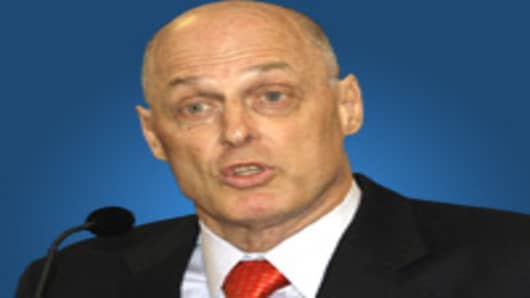Treasury Secretary Henry Paulson warned on Sunday that governments should resist temptation to try to control soaring food costs through price controls, which he said would likely make the situation worse.
In remarks prepared for delivery to the World Bank's development committee, Paulson said such measures were "generally not effective and efficient" at protecting people likely to suffer the most.
"They tend to create fiscal burdens and economic distortions while often providing aid to higher-income consumers or commercial interests other than the intended beneficiaries," Paulson said.
World Bank President Robert Zoellick warned earlier this month that soaring food and energy prices were a serious concern that threatened to foster social unrest in an estimated 33 countries.
Zoellick called on rich countries including the United States, Japan and European Union to immediately fill a $500 million funding gap at the United Nations World Food Programme to offer food aid to the world's poorest.
Paulson said countries suffering "severe negative shifts in the terms of trade due to higher commodity prices including higher food prices" should focus on policies to control energy use and consider measures to boost agricultural production.
"Governments, however, need to resist the temptation of price controls and consumption subsidies that are methods of protecting vulnerable groups," he said.
The World Bank has similarly advised that, despite the fact that several countries are trying price controls to curb food costs, it is unlikely to be effective in the longer term.
"Income transfers or food assistance for poor people will work more efficiently and sustainably than more general steps at the national level," World Bank economist Don Mitchell said recently.
(Reporting by Glenn Somerville; Editing by Andrea Ricci)


